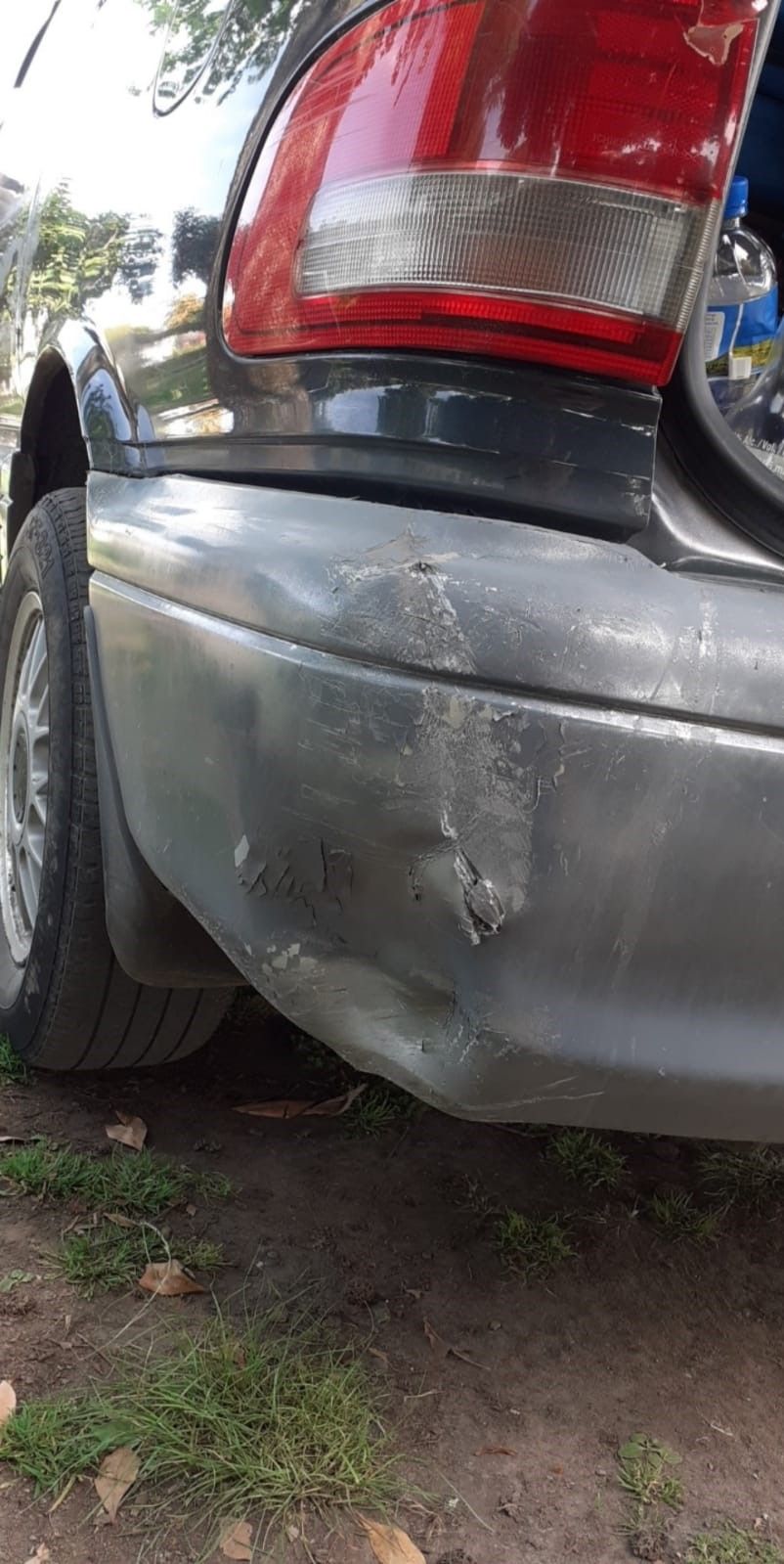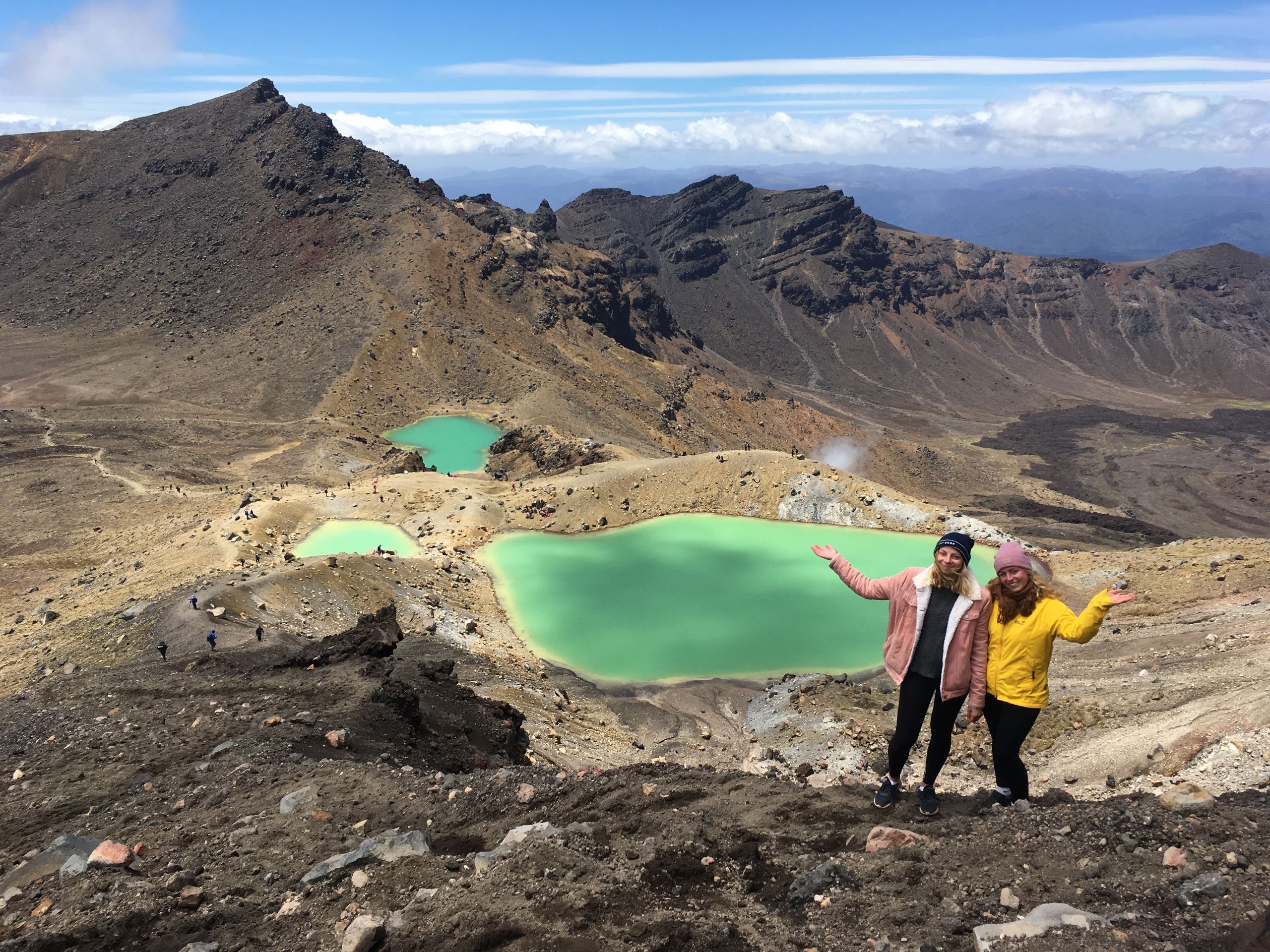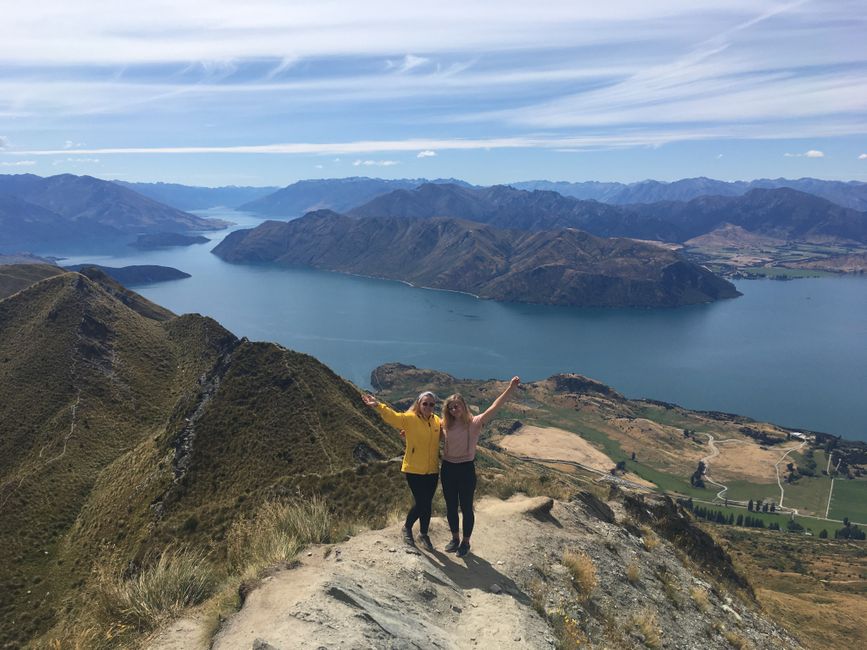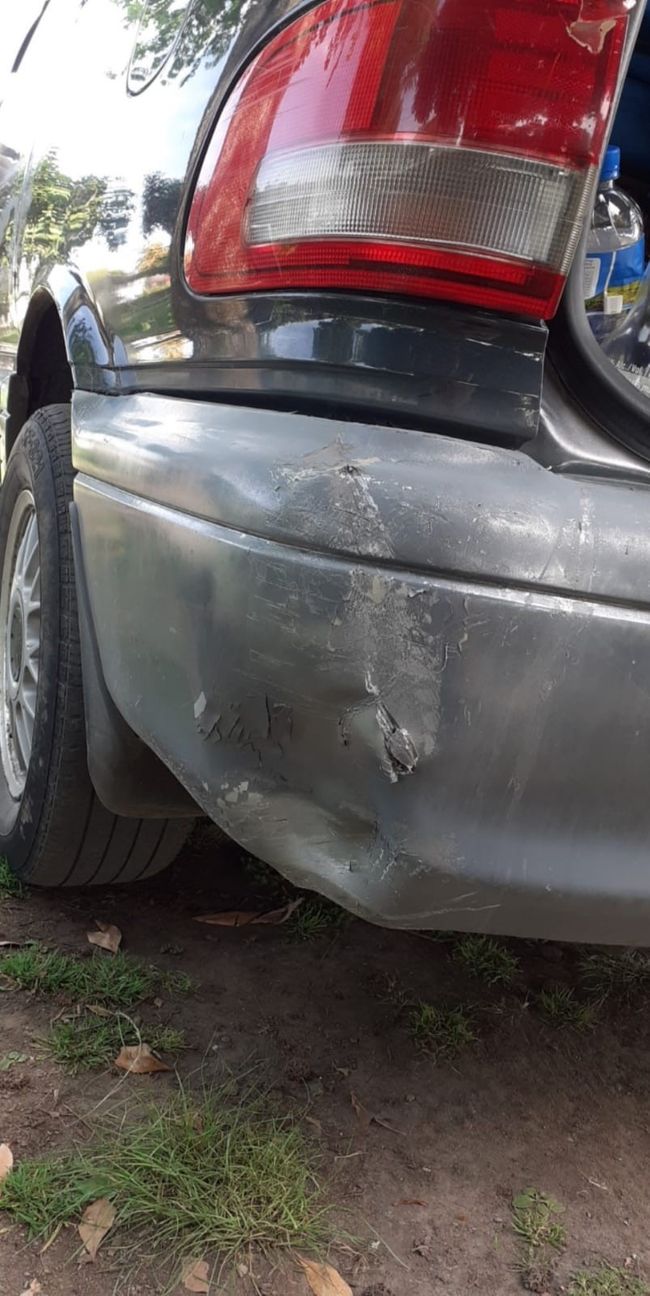-Chapter 22- working again: not okay but 'sweet' -all experiences
יצא לאור: 11.08.2020
In Te Puke, it was not possible to not find a job. We had contacted a few Kiwi agencies through Indeed, and found a job right away. I think as long as you have a visa and a passport, they are not so picky. But since we had only communicated with the guy through SMS, we were curious about who we would be dealing with this time. It confused us a little when he wrote 'Sweet' instead of okay, and the evening before our first day he wrote 'I hope you are hard workers and learn quickly.' That sounded great. (He also wrote at 9:00 that we should please bring our own non-existent hedge trimmers). Accordingly, we were nervous the next morning. When we arrived at the kiwi farm, I first saw an ancient Indian man with a long gray beard, turban and sunglasses, explaining something to a group of people our age. We got even more nervous and got out of the car and were greeted by a young Indian man named Taranji who turned out to be the author of the messages. We followed him onto the kiwi farm, as he wanted to introduce us to his manager, who completely ignored us and asked him quite rudely where his family was. We were relieved that there were so many other employees, but everything seemed very chaotic there as well. The bosses couldn't agree on what we should do, they quickly spoke in Indian and kept sending us to different rows. After a few minutes, Taranji, or Taron, as he was called by the other employees, said that I could work with his sister. A woman who was so covered that I could only see her eyes until she later put on her sunglasses and I couldn't see anything anymore. Celina should go with a man whom Taron introduced to her as 'my... brother'. During the day, the Indian woman proudly explained to me that this man would be her husband. We thought that was pretty strange at first, but since the Indians (at least the ones on this farm) were very family-oriented and usually lived together in one house, Taron apparently saw his sister's husband as his brother. The Indian woman also told me that her whole family worked on the kiwi farm, except for her mother, who was a housewife. The first few days of work were basically fine, but Celina and I were always separated, which annoyed us after a while. After all, all the other employees worked only with their friends and not with the Indians, who were already annoyed. We also found it a bit strange that we were supposed to buy our own hedge trimmers, even though the other employees would always get the hedge trimmers from Taron's Indian car every morning.
We were the only backpackers on the farm. Otherwise, there were only the Indian family, two New Zealand guys, a Korean girl named June, her moody friend Chris, the Filipino Francis and six other girls. Except for Francis, they were all New Zealand students who worked on the kiwi farm during their semester break.
Unlike Powen, we were able to sign our work contract on the first day and received our wages regularly and in detail. That was very good.
The next two days, we had to drive 45 minutes to a wild and gigantic kiwi farm in the middle of nowhere. The owner was pretty creepy, always lurking around and had a thin, soft voice. (I'm pretty sure he played an orc in 'The Lord of the Rings' movies). On such huge farms like this, there were a total of 40 employees. Another work group, which probably was led by a cousin of Taron, always joined us. We also noticed that working on the kiwi farm was not suitable for tall people, because in the other group there was a funny Indian guy who had to walk through the rows with his head on his shoulder. When he was working, he had to stand with his legs wide apart and you could only see him up to his neck. He always wore a pink cloth around his shoulders, had a permanent grin and wanted us to teach him words in German. The two days on the wild farm were the best during the second job.
A cozy get-together with colleagues
On a particularly hot Saturday, only the Indians, us, the Filipino and his wife, the Korean girl named June, and the two New Zealand guys were working. One of them, named James, studied in Queenstown, had a mustache and had spent a year as an exchange student in Berlin. But he could only speak a little German. When he worked with Celina in a row, he told her enthusiastically about the train ride to Hamburg. In New Zealand, there are very few and short passenger trains. Celina and I referred to his friend as the werewolf, because we never found out his name. He wore the same orange t-shirt every day, had a full beard and thick, pretty long hair, which was particularly strange because he had the figure of a 14-year-old. He smoked like a chimney during every break. But the best thing was always his car. You could hear him long before you could see him. One day, we were working on a farm on a hill when I heard a very loud noise for five minutes, and I thought it was a tractor. But it was the werewolf, who had driven to the wrong farm and was half an hour late for work because of that.
The farm on this particularly hot Saturday was very small, and by 12 o'clock we were basically done. Taron had disappeared with the other man, and his sister took over command. She instructed us to work particularly slowly so that the farm owner wouldn't see that we had already finished a long time ago and were still getting paid. At 2 p.m., everyone was supposed to gather at the car, and there was beer or vodka, along with large Indian spring rolls. Then we stood in a circle for an hour and had conversations. It was a nightmare for Celina and me. We struggled with our beer and were completely focused on not looking out of place (I don't think it worked so well because Taron asked us once if everything was okay). The conversations basically only took place between James, Taron, and June, who asked each other very personal questions or switched to extreme small talk. We had a nice conversation with the guys about Mount Maunganui, and Taron, who had observed us, said to James, "You finished them, right?" Later, James tried to start a conversation with us again by asking us something about Germany, but Taron answered for us and then changed the subject. To be polite, Celina tried a spring roll, which made her feel really sick along with the beer, and the werewolf drank one beer after another and smoked like a chimney. The Filipinos were only asked something once, but Taron also answered for them as if they were two children, taking them out of the conversation. At a quarter to three, Taron said to us, only to Celina and me, that we could go home first.
What more can you say? We wanted nothing more than to get away from the farm. Celina felt really sick, so I tried to pull out of the parking lot completely absent-mindedly and reversed along the narrow aisle between the kiwi trees. In doing so, I crashed full speed into a wooden pillar (The noise made everyone look up. It was so embarrassing). Then we drove backwards in slalom around the whole plantation until we finally reached the exit, where, to top it off, we met the other employees who were just driving onto the street because they had simply driven forward 5 minutes after us. Our car had already had a lot of beauty flaws when we bought it, but the most noticeable dent only appeared after this terrible Saturday.

The employees
The good thing about the second job was that the Indians took their work much more relaxed than Powen and Mac, who treated the Kiwis like 'little babies'. If, typically German, we made the mistake of arriving shortly before 8, we were always the first ones there, and a 10-minute break could quickly turn into half an hour. Over time, we got really annoyed by the standard calls that Taron recited every day with his hoarse, deep voice. Every few hours, 'KEEP MOVING GUYS' or 'BACK TO WORK GUYS' or 'MARK YOUR ROW GUYS' echoed across the farm. But our favorite sentence was still the friendly 'SPEED UP, GUYS'. And as we had noticed with the French at Powen, it made a huge difference whether there were other employees or not. The work is okay, but very monotonous, and you can't think about your life for 9.5 hours for three weeks. We were particularly lucky because the others were very nice and had a lot of entertainment value. One girl made up for her attention deficit by always wearing a big music box on her back and listening to music so loudly that everyone on the farm had to listen too. At first, that was okay, but after two weeks of hearing the same playlist twice every day (and particularly often 'Memories' by Maroon Five), we were a bit annoyed when she approached us and we had to turn up the music on our headphones as loudly as possible to drown her out. During breaks, she always smoked one cigarette after another with the werewolf. The Korean girl named June was very nice, about our age, and had emigrated to New Zealand without her family a few years earlier to study elementary education there. Then there were four girls who were inseparable, all looked relatively similar, and always told each other very loudly dramatic rumors. ('WAIT! The man has a child with his wife's best friend?'). They often said 'Yeah, yeah', which, much to Celina's annoyance, I incorporated beautifully into my vocabulary. One of them especially liked to use the word and yelled it across the farm to her friends so often that their names are probably burned into our memories forever: 'LEANNAOLIVIA, COME HERE!'
The only employee who, just like us, worked every day and always until the end, was the Filipino named Francis. He only had a limited visa and earned a living on the kiwi farm for himself and his Filipino girlfriend, who was studying in New Zealand. He never said a word, except 'Yes' or 'No' when Taron dared to talk to him. I think he would have treated him just like us if he didn't always look so grumpy. It was definitely strange to watch him work, because he moved like a sloth. Ten minutes before the end, he always marked his row and then stood around for a while until Taron shouted 'MARK YOUR ROW GUYS!'. After the break, he always found a way to delay the work a little longer. Either by tapping his gloves off in slow motion or carefully winding up his headphones. Once, after the break, he started a row next to us but just stood around for ten minutes. Then he walked a few meters ahead until he was level with us, and started from there. When Taron later told him that he had forgotten too many buds, he acted as if he had overlooked them. We really liked Francis!
תשובה


